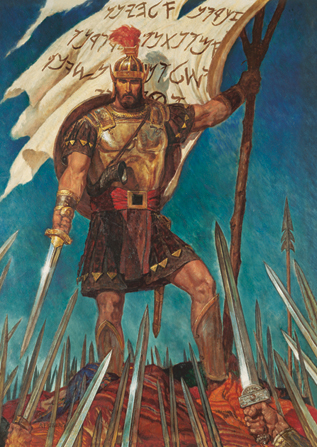What is the point in reading the Book of Mormon? It’s long. There
are a bunch of people with strange names. It doesn't have a happy ending. So
why read it?
The title of the book has the answer – The Book of Mormon: Another Testament of Jesus Christ. Jesus
Christ is the reason we read it. Through the Book of Mormon, we can learn of
Christ and his teachings. But we must do more than just read of Christ; we must
emulate him. Christ is the way to eternal perfection. As we emulate Christ, we
become like Christ, perfect and holy.
Moroni, in some of his closing words to us, summarized what
Christ did, and what we must do. Moroni did this by describing charity. Today,
we may think of charity as giving money, or donating time. These are
consequences of charity, but charity is something more. As Moroni explains,
“Charity is the pure love of Christ…” (Moroni 7:47). There was only one true
example of charity, and that was Jesus Christ. As before, the best we can do is
emulate him. But, as we emulate and become more like Christ, does this not
involve coming to possess some of that pure love of Christ? Indeed, it does.
Lucky for us, Moroni also supplied us with a quick blueprint
of this charity:
“And charity suffereth long, and is kind, and envieth not,
and is not puffed up, seeketh not her own, is not easily provoked, thinketh no
evil, and rejoiceth not in iniquity but rejoiceth in the truth, beareth all
things, believeth all things, hopeth all things, endureth all things” (Moroni
7:45).
Just as we could easily replace the word “charity” with
“Christ” in this verse, we should one day hope to replace “charity” with our
own name. And then, as Moroni points out, “Whoso is found possessed of it
(charity) at the last day, it shall be well with him” (Moroni 7:47).
The Book of Mormon may not have a happy ending for the
Nephite nation, but it was never intended to be just a story of them. It was
also a story of us. And with that ending, we have full control.




